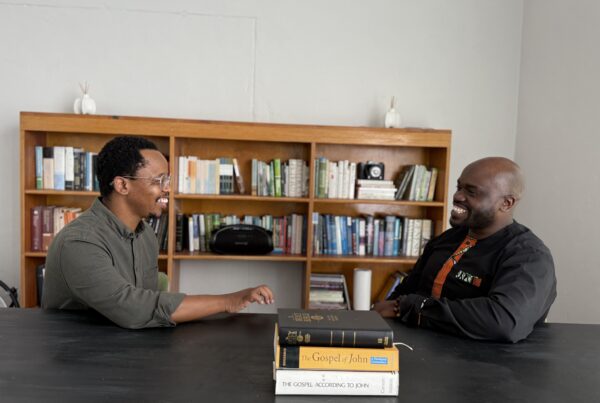Stephen Murray says anyone stepping off a plane in Cape Town will immediately see, even geographically, that it’s an “incredibly racially divided city.” Years of apartheid have left a legacy of wounds and scars. The city struggles with economic inequality, heavy unemployment, violence, and high crime rates.
It’s into this context that Stephen wanted to plant a church. He’d become captivated by church planting and began to ask, “What do we do? Where do we locate ourselves in that space?” These questions have been at the heart of their Acts 29 church plant from the beginning as they seek to shine the gospel of hope and reconciliation into a city rife with injustice.
Church Planting and Evangelism
“For me, church planting is first and foremost about evangelism, about people coming from the kingdom of darkness into the kingdom of light,” Stephen said. He saw his city’s desperate need for gospel hope and more churches to keep up with population growth. He and his wife, Robin, decided to focus on Cape Town’s urban center, where they planted Hope City Presbyterian Church in 2013. “For me, church planting is first and foremost about evangelism, about people coming from the kingdom of darkness into the kingdom of light” -Stephen Murray Click To Tweet
Hope City’s vision has always been to welcome secular folk to come and hear the gospel taught in an accessible and intellectually rigorous way while being included in a counter-cultural community of love, generosity, and hospitality. They remain committed in their resolve to live justly and defy the existing effects of apartheid. “We don’t want to be swayed by what’s going on in the broader culture. Instead, we want to ask, what does the Bible say about justice?”
Stephen believes church planting is the greatest missionary strategy and that evangelism happens best through church planting. Therefore, church planting is a top priority for Hope City. Stephen wants his congregation never to think of Hope City as the ultimate end—the ultimate end is glory with God in the new creation. “The more we plant churches, the more people will enter that glory.”
Church Planting and Reconciliation
To this end, Wesley Marshall joined Hope City as a church-planting resident in 2019 to plant Hope City’s East City Congregation in the Woodstock and Observatory neighborhoods of Cape Town. He and his wife, Nicole, decided to plant with Hope City because they found in Hope City a church passionate about speaking out against injustice “from a position of understanding the gospel—that God is busy bringing together a people he’s calling his own from every nation, every tribe, and every tongue.” “We desire to see this diverse part of Cape Town come together, as one, to worship God in the context of a gospel-centered local church.” -Wesley Marshall Click To Tweet
Woodstock is diverse culturally, racially, socio-economically, generationally, and intellectually. The Marshalls desire to see this diversity present in all spheres of this church plant and place a high value on pursuing it. They also seek to be contextually sensitive—to understand their context by knowing the fears, dreams, and big life questions of their community.
Wesley said, “We desire to see this diverse part of Cape Town come together as one to worship God in the context of a gospel-centered local church—irrespective of the color of their skin, irrespective of their culture.”
Stephen knows that church planting will change Cape Town because the gospel changes Christians. He said, “Transformation is going to happen when we fill all our communities with these communities of light—churches.” May God transform Cape Town and many other cities for his glory through the planting of gospel-preaching churches.










